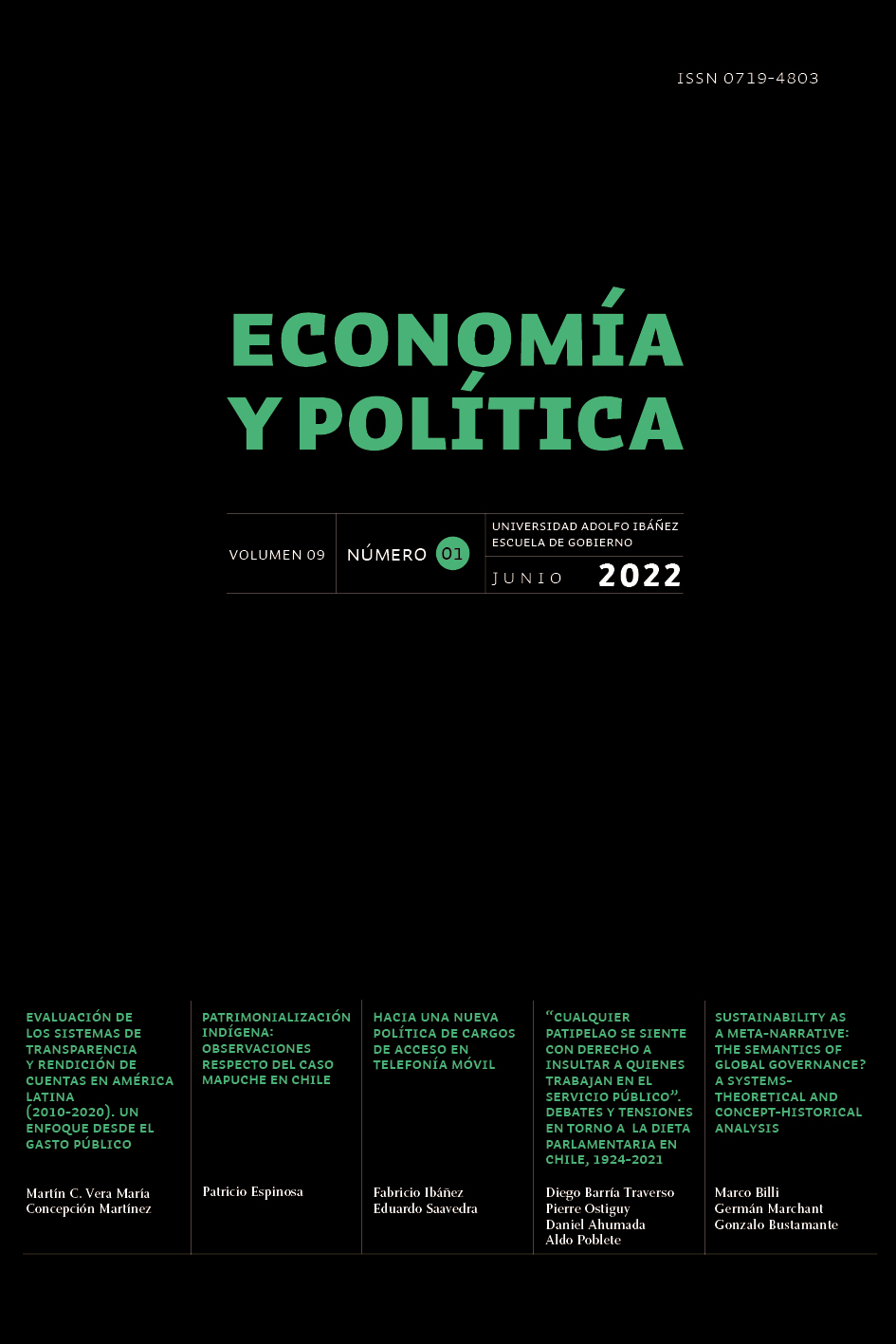Evaluation of transparency and accountability systems in Latin America (2010-2020). An approach from public spending
DOI:
https://doi.org/10.15691/07194714.2022.001Keywords:
Transparency, accountability, open government, Latin AmericaAbstract
The work intends to address the issue of public policies of transparency and accountability in Latin America in the second decade of the 21st century. To do this, it focuses on three leading countries in the region —Argentina, Chile and Mexico— with the aim of making a comparison between them and provide theoretical and practical tools to generate a network or structure of control and accountability as broad, dense and coordinated as possible. To do this, the work uses four variables to apply: vertical accountability, horizontal accountability, social accountability and open government. The results of the research show that Argentina is the case in which the political variable prevails over the law and institutions, gaining relevance civil society and progressively justice. On its side, Chile stands as a peculiar case since, from being the vanguard and reference in the region for its control system, it has gone through stagnation and then its retraction. Finally, Mexico, despite its historical problems in this area, experienced a continuous evolution of its transparency and accountability system.


